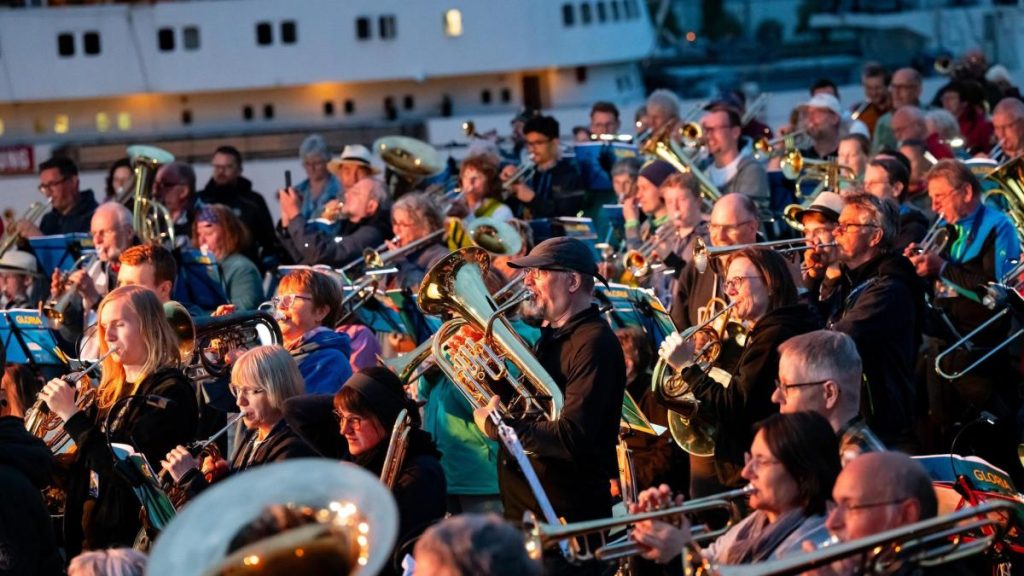The Protestantism in Germany suffered a loss of nearly 600,000 members in 2023 due to departures and a decrease in baptisms and new entries, as reported by the Evangelical Church in Germany (EKD). However, the third German Protestant Trombone Day held in Hamburg showed the strength of Protestantism through the gathering of 15,000 brass players who showcased their musical heritage at the opening service. The event featured a specially composed piece called “Setting Sail” that resonated with hymn-like fanfares. This event highlighted the importance of brass music within Protestantism, with around 5300 trombone choirs providing a sense of stability and community.
The Japanese musician Ikumi Watanabe, who traveled from Tokyo to Hamburg for the Evangelical Trombone Day, exemplifies the deep connection and sense of belonging within trombone choirs. Many members, like the Mertens sisters, were introduced to brass music through family involvement and continue to be passionate about playing despite not being active in local choirs. The camaraderie and familial bond within these choirs serve as a strong example of how religious socialization can foster a sense of belonging and commitment to participation in musical activities.
However, the declining trend of religious socialization in Germany has also impacted trombone choirs, with a decrease in membership from 98,000 in 2007 to just over 72,000 in 2021. To address these challenges, initiatives like flaechengold.de aim to attract a diverse range of individuals interested in communal brass music, irrespective of background or upbringing. While church involvement remains important, a more open approach to faith questions is necessary to engage a wider audience and ensure the sustainability of trombone choirs.
Trombone choirs have their origins in pietistic and evangelical movements of the 18th and 19th centuries, emphasizing a devout form of Protestantism. Despite this historical foundation, modern trombone choirs have evolved to encompass a broader spectrum of beliefs and backgrounds among their members. The intrinsic connection between faith, music, and community remains a central aspect of trombone choir participation, extending beyond religious contexts to include performances in various settings.
The annual Trombone Day serves as a platform for members to express their faith through music without the need for explicit religious explanations or messages. The focus is on the sheer joy of playing together and creating a harmonious sound that resonates with both participants and audiences. In a communal setting like the Hamburg Moorweide, thousands of brass players come together to play in unison, underlining the importance of coordination and unity in conveying their beliefs through music. The event serves as a testament to the enduring legacy of brass music within Protestantism and the continued relevance of trombone choirs in fostering a sense of community and shared identity.


